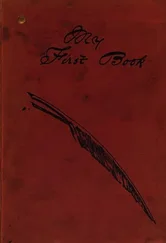Jerome Jerome - Novel Notes
Здесь есть возможность читать онлайн «Jerome Jerome - Novel Notes» весь текст электронной книги совершенно бесплатно (целиком полную версию без сокращений). В некоторых случаях можно слушать аудио, скачать через торрент в формате fb2 и присутствует краткое содержание. Жанр: Юмористическая проза, Классическая проза, на английском языке. Описание произведения, (предисловие) а так же отзывы посетителей доступны на портале библиотеки ЛибКат.
- Название:Novel Notes
- Автор:
- Жанр:
- Год:неизвестен
- ISBN:нет данных
- Рейтинг книги:5 / 5. Голосов: 1
-
Избранное:Добавить в избранное
- Отзывы:
-
Ваша оценка:
- 100
- 1
- 2
- 3
- 4
- 5
Novel Notes: краткое содержание, описание и аннотация
Предлагаем к чтению аннотацию, описание, краткое содержание или предисловие (зависит от того, что написал сам автор книги «Novel Notes»). Если вы не нашли необходимую информацию о книге — напишите в комментариях, мы постараемся отыскать её.
Novel Notes — читать онлайн бесплатно полную книгу (весь текст) целиком
Ниже представлен текст книги, разбитый по страницам. Система сохранения места последней прочитанной страницы, позволяет с удобством читать онлайн бесплатно книгу «Novel Notes», без необходимости каждый раз заново искать на чём Вы остановились. Поставьте закладку, и сможете в любой момент перейти на страницу, на которой закончили чтение.
Интервал:
Закладка:
That evening he performed another solemn oath-taking, and for the next month was the model boy of the school. He read tracts, sent his spare pocket-money to assist in annoying the heathen, and subscribed to The Young Christian and The Weekly Rambler, an Evangelical Miscellany (whatever that may mean). An undiluted course of this pernicious literature naturally created in him a desire towards the opposite extreme. He suddenly dropped The Young Christian and The Weekly Rambler, and purchased penny dreadfuls; and taking no further interest in the welfare of the heathen, saved up and bought a second-hand revolver and a hundred cartridges. His ambition, he confided to me, was to become "a dead shot," and the marvel of it is that he did not succeed.
Of course, there followed the usual discovery and consequent trouble, the usual repentance and reformation, the usual determination to start a new life.
Poor fellow, he lived "starting a new life." Every New Year's Day he would start a new life―on his birthday―on other people's birthdays. I fancy that, later on, when he came to know their importance, he extended the principle to quarter days. "Tidying up, and starting afresh," he always called it.
I think as a young man he was better than most of us. But he lacked that great gift which is the distinguishing feature of the English-speaking race all the world over, the gift of hypocrisy. He seemed incapable of doing the slightest thing without getting found out; a grave misfortune for a man to suffer from, this.
Dear simple-hearted fellow, it never occurred to him that he was as other men―with, perhaps, a dash of straightforwardness added; he regarded himself as a monster of depravity. One evening I found him in his chambers engaged upon his Sisyphean labour of "tidying up." A heap of letters, photographs, and bills lay before him. He was tearing them up and throwing them into the fire.
I came towards him, but he stopped me. "Don't come near me," he cried, "don't touch me. I'm not fit to shake hands with a decent man."
It was the sort of speech to make one feel hot and uncomfortable. I did not know what to answer, and murmured something about his being no worse than the average.
"Don't talk like that," he answered excitedly; "you say that to comfort me, I know; but I don't like to hear it. If I thought other men were like me I should be ashamed of being a man. I've been a blackguard, old fellow, but, please God, it's not too late. To-morrow morning I begin a new life."
He finished his work of destruction, and then rang the bell, and sent his man downstairs for a bottle of champagne.
"My last drink," he said, as we clicked glasses. "Here's to the old life out, and the new life in."
He took a sip and flung the glass with the remainder into the fire. He was always a little theatrical, especially when most in earnest.
For a long while after that I saw nothing of him. Then, one evening, sitting down to supper at a restaurant, I noticed him opposite to me in company that could hardly be called doubtful.
He flushed and came over to me. "I've been an old woman for nearly six months," he said, with a laugh. "I find I can't stand it any longer."
"After all," he continued, "what is life for but to live? It's only hypocritical to try and be a thing we are not. And do you know"―he leant across the table, speaking earnestly―"honestly and seriously, I'm a better man―I feel it and know it―when I am my natural self than when I am trying to be an impossible saint."
That was the mistake he made; he always ran to extremes. He thought that an oath, if it were only big enough, would frighten away Human Nature, instead of serving only as a challenge to it. Accordingly, each reformation was more intemperate than the last, to be duly followed by a greater swing of the pendulum in the opposite direction.
Being now in a thoroughly reckless mood, he went the pace rather hotly. Then, one evening, without any previous warning, I had a note from him. "Come round and see me on Thursday. It is my wedding eve."
I went. He was once more "tidying up." All his drawers were open, and on the table were piled packs of cards, betting books, and much written paper, all, as before, in course of demolition.
I smiled: I could not help it, and, no way abashed, he laughed his usual hearty, honest laugh.
"I know," he exclaimed gaily, "but this is not the same as the others."
Then, laying his hand on my shoulder, and speaking with the sudden seriousness that comes so readily to shallow natures, he said, "God has heard my prayer, old friend. He knows I am weak. He has sent down an angel out of Heaven to help me."
He took her portrait from the mantelpiece and handed it me. It seemed to me the face of a hard, narrow woman, but, of course, he raved about her.
As he talked, there fluttered to the ground from the heap before him an old restaurant bill, and, stooping, he picked it up and held it in his hand, musing.
"Have you ever noticed how the scent of the champagne and the candles seems to cling to these things?" he said lightly, sniffing carelessly at it. "I wonder what's become of her?"
"I think I wouldn't think about her at all tonight," I answered.
He loosened his hand, letting the paper fall into the fire.
"My God!" he cried vehemently, "when I think of all the wrong I have done―the irreparable, ever-widening ruin I have perhaps brought into the world―O God! spare me a long life that I may make amends. Every hour, every minute of it shall be devoted to your service."
As he stood there, with his eager boyish eyes upraised, a light seemed to fall upon his face and illumine it. I had pushed the photograph back to him, and it lay upon the table before him. He knelt and pressed his lips to it.
"With your help, my darling, and His," he murmured.
The next morning he was married. She was a well-meaning girl, though her piety, as is the case with most people, was of the negative order; and her antipathy to things evil much stronger than her sympathy with things good. For a longer time than I had expected she kept him straight―perhaps a little too straight. But at last there came the inevitable relapse.
I called upon him, in answer to an excited message, and found him in the depths of despair. It was the old story, human weakness, combined with lamentable lack of the most ordinary precautions against being found out. He gave me details, interspersed with exuberant denunciations of himself, and I undertook the delicate task of peace-maker.
It was a weary work, but eventually she consented to forgive him. His joy, when I told him, was boundless.
"How good women are," he said, while the tears came into his eyes. "But she shall not repent it. Please God, from this day forth, I'll―"
He stopped, and for the first time in his life the doubt of himself crossed his mind. As I sat watching him, the joy died out of his face, and the first hint of age passed over it.
"I seem to have been 'tidying up and starting afresh' all my life," he said wearily; "I'm beginning to see where the untidiness lies, and the only way to get rid of it."
I did not understand the meaning of his words at the time, but learnt it later on.
He strove, according to his strength, and fell. But by a miracle his transgression was not discovered. The facts came to light long afterwards, but at the time there were only two who knew.
It was his last failure. Late one evening I received a hurriedly-scrawled note from his wife, begging me to come round.
"A terrible thing has happened," it ran; "Charley went up to his study after dinner, saying he had some 'tidying up,' as he calls it, to do, and did not wish to be disturbed. In clearing out his desk he must have handled carelessly the revolver that he always keeps there, not remembering, I suppose, that it was loaded. We heard a report, and on rushing into the room found him lying dead on the floor. The bullet had passed right through his heart."
Читать дальшеИнтервал:
Закладка:
Похожие книги на «Novel Notes»
Представляем Вашему вниманию похожие книги на «Novel Notes» списком для выбора. Мы отобрали схожую по названию и смыслу литературу в надежде предоставить читателям больше вариантов отыскать новые, интересные, ещё непрочитанные произведения.
Обсуждение, отзывы о книге «Novel Notes» и просто собственные мнения читателей. Оставьте ваши комментарии, напишите, что Вы думаете о произведении, его смысле или главных героях. Укажите что конкретно понравилось, а что нет, и почему Вы так считаете.











